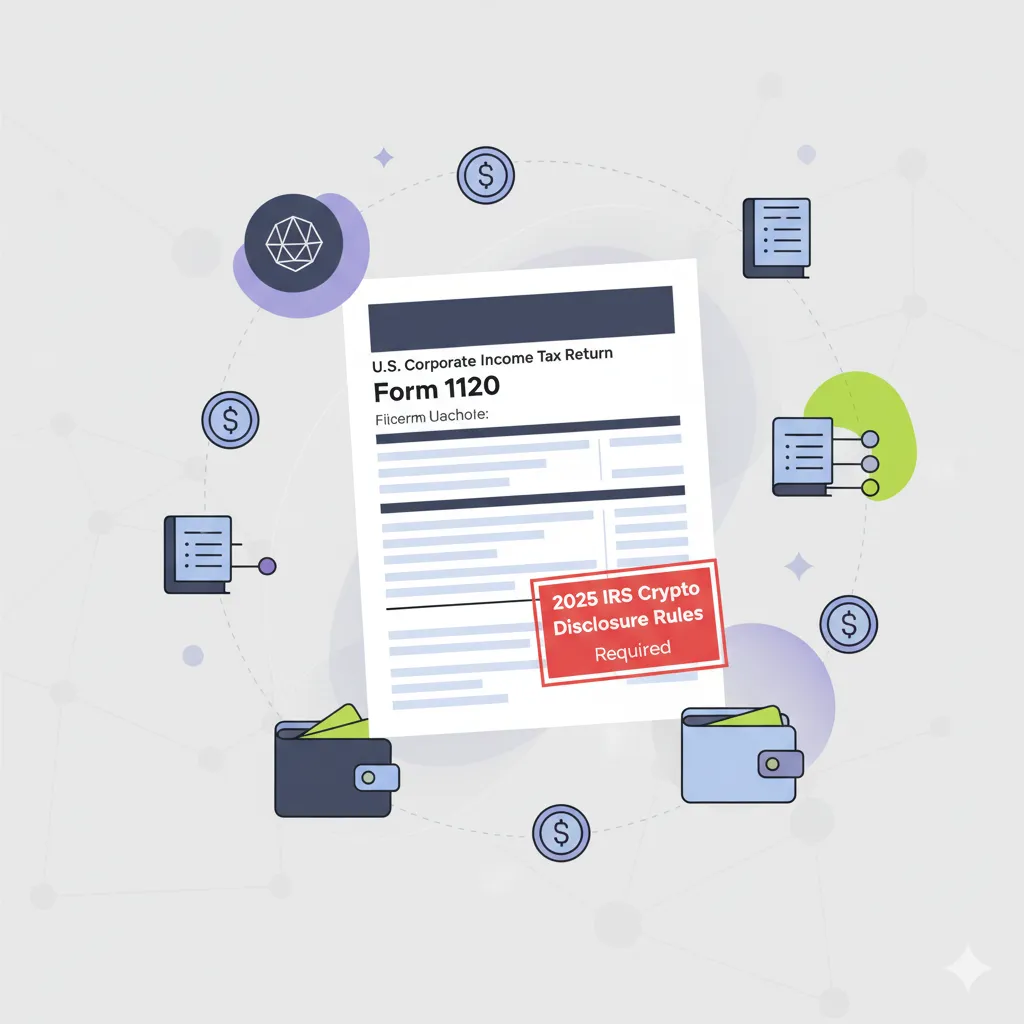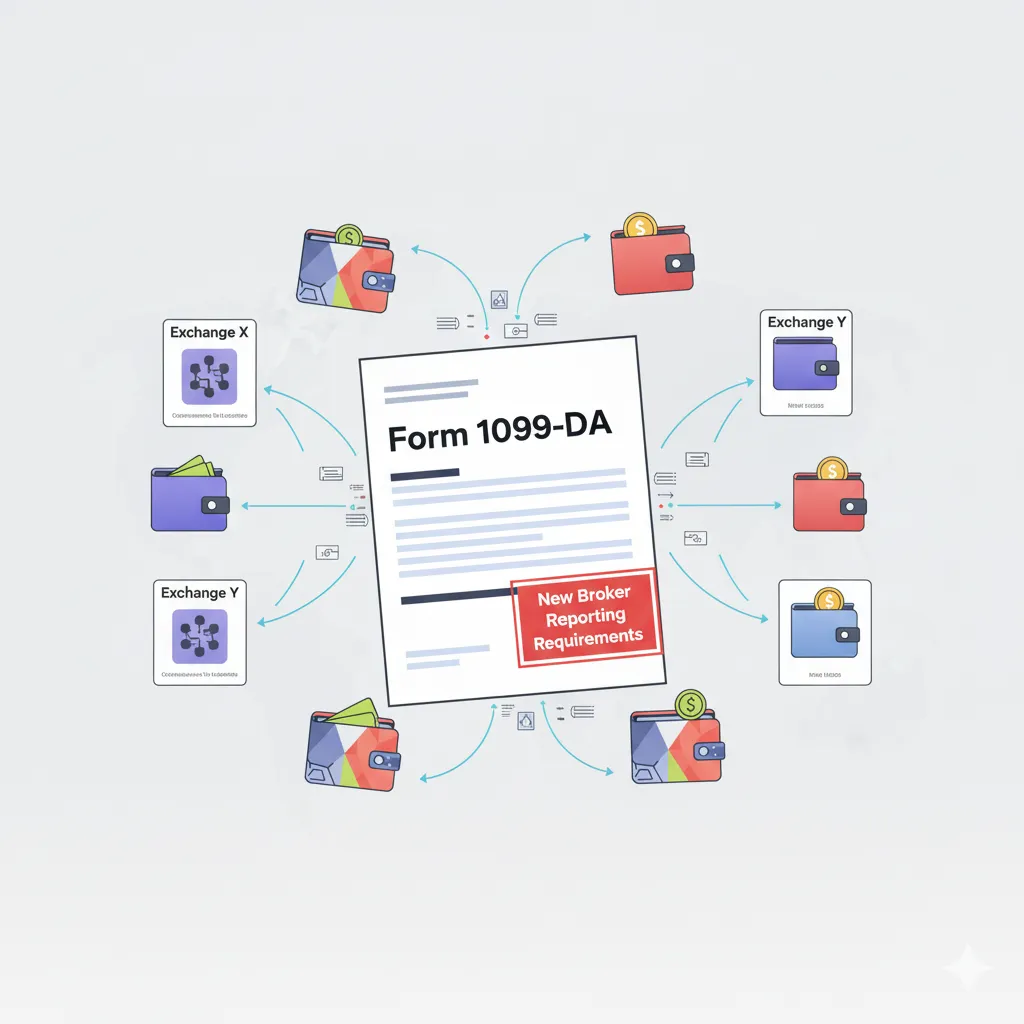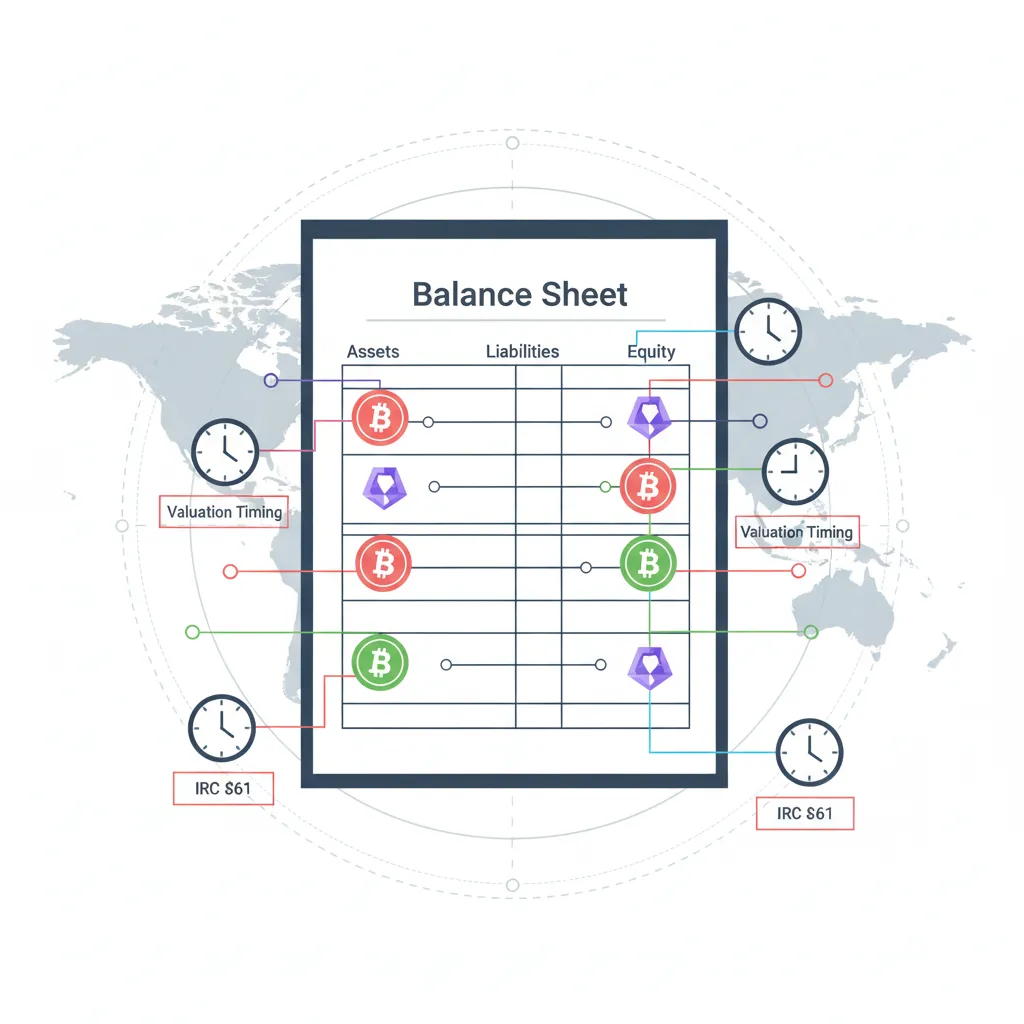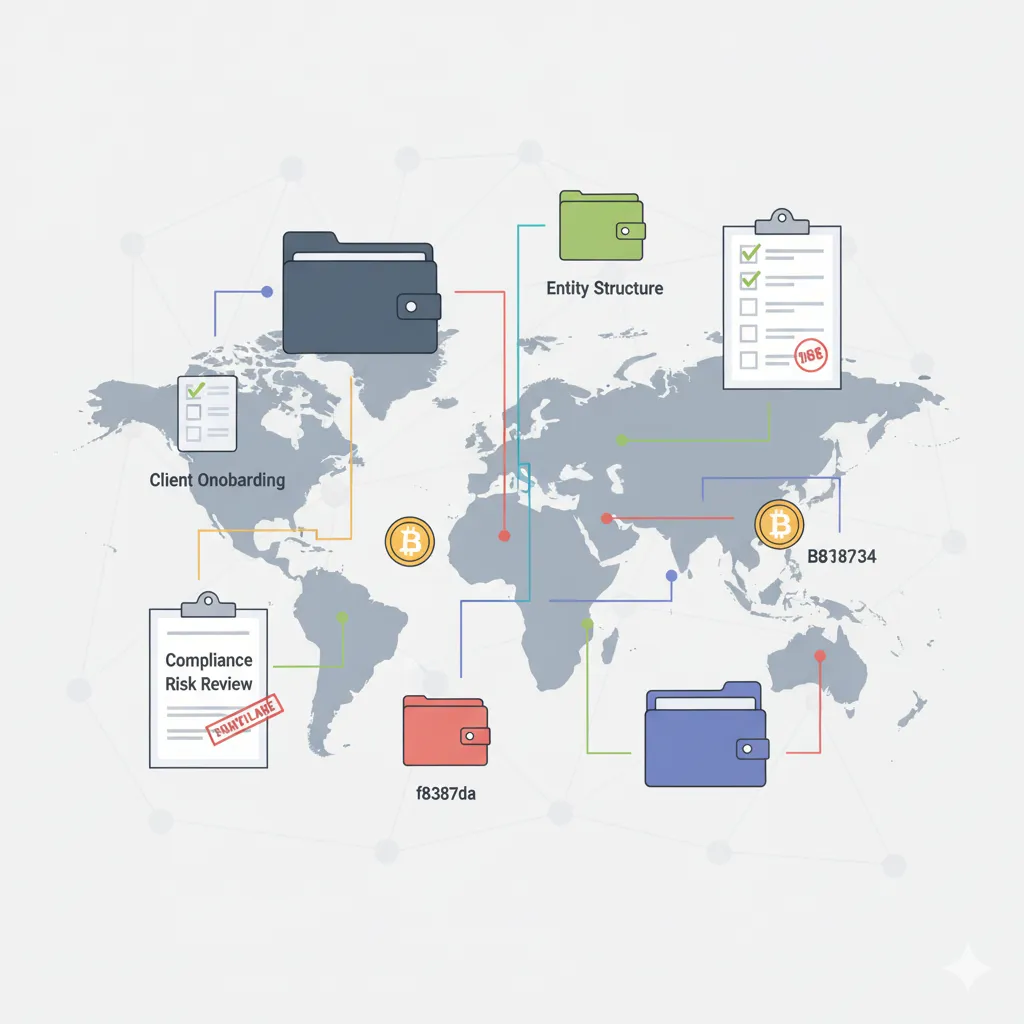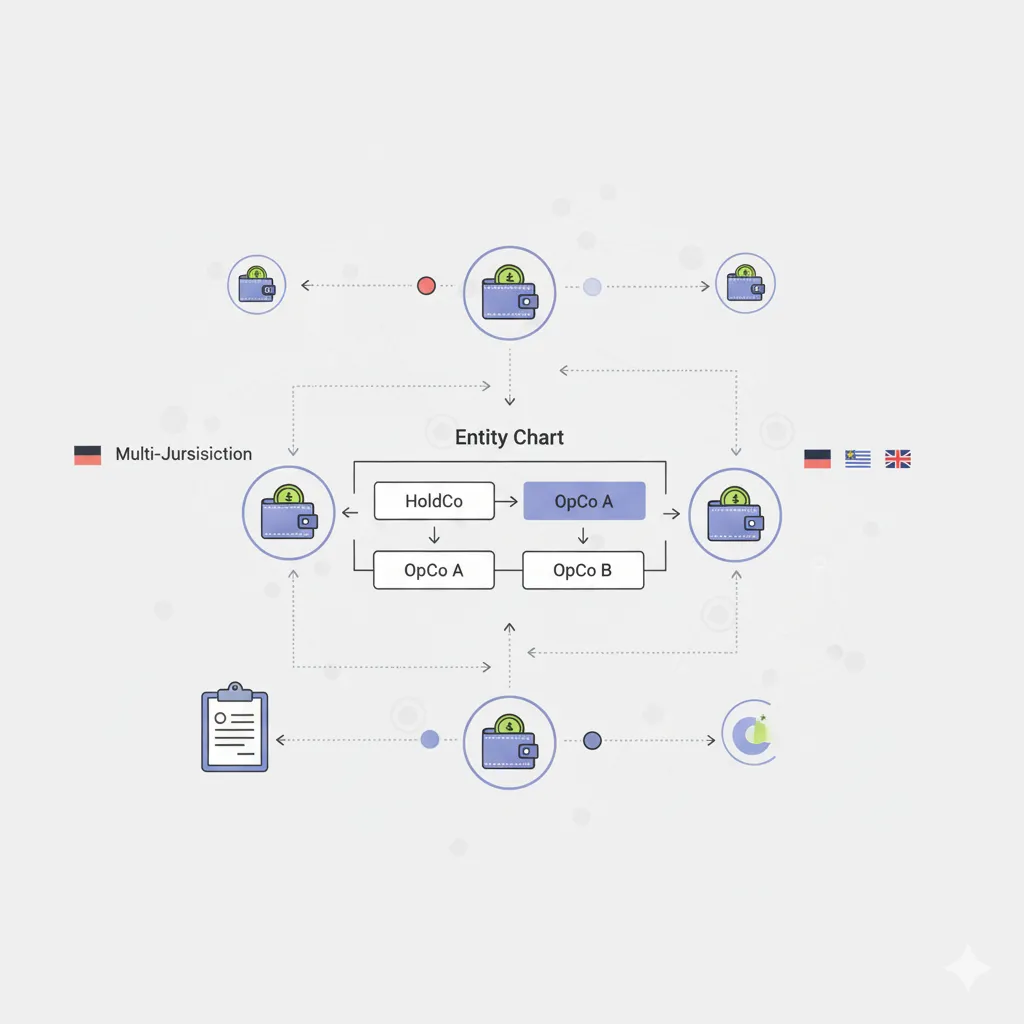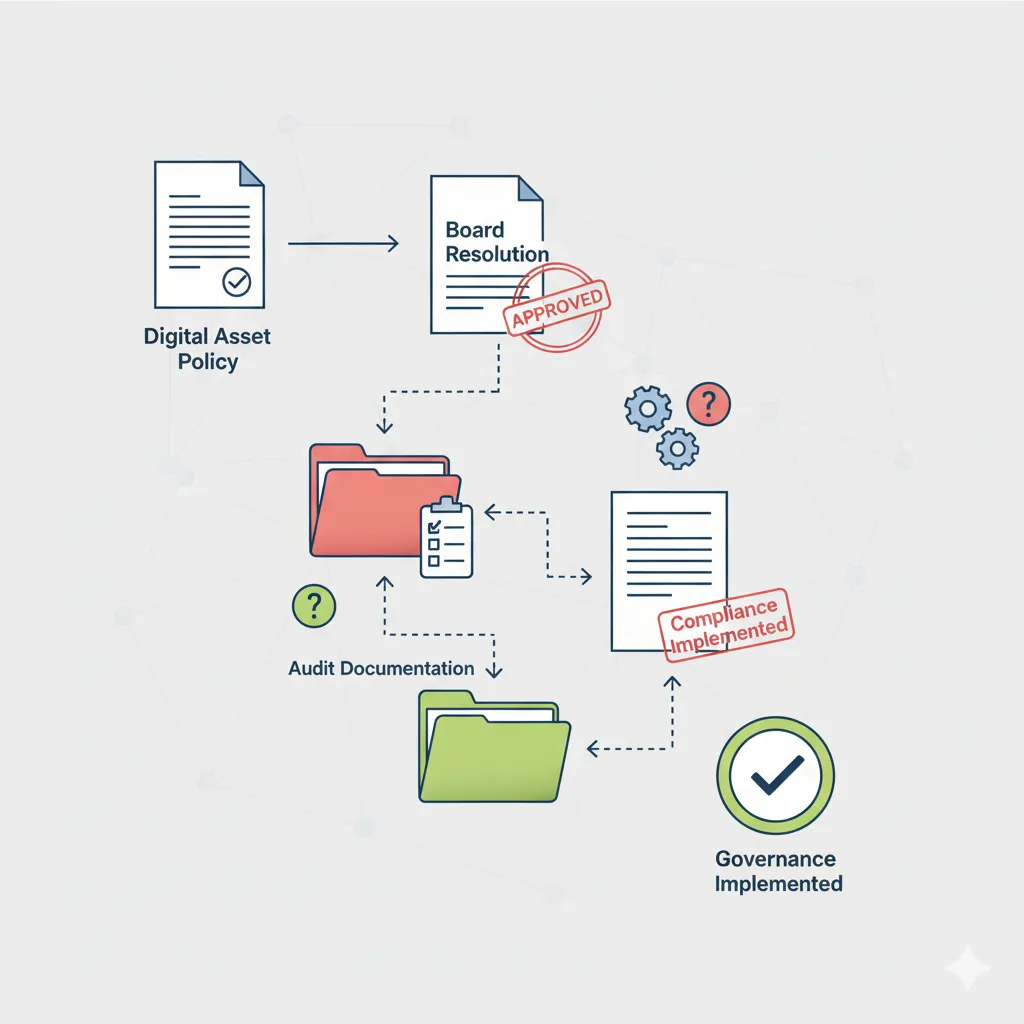Systematic Implementation of Compliance Infrastructure
Phase 3 transforms strategic decisions into operational reality through systematic implementation of policies, procedures, and systems that will govern the client's crypto operations going forward. This phase requires careful project management because multiple interconnected systems must be implemented simultaneously while maintaining ongoing business operations.
The corporate governance framework established during this phase will determine how effectively the client can maintain compliance as their business grows and regulatory requirements evolve. Similarly, the technology systems implemented now must be scalable and adaptable to future needs while providing immediate compliance support.
Your role during implementation is to ensure that all systems work together effectively and that the client's team understands their ongoing obligations and procedures. This requires not just drafting policies, but training personnel and establishing accountability mechanisms that will ensure sustained compliance.
Corporate Governance Implementation
Comprehensive Board Resolution for Digital Assets
The board resolution establishes formal corporate authority and accountability for crypto compliance. This isn't just a legal formality—it creates the governance framework that will guide decision-making and establish clear responsibilities.
Board Resolution Regarding Digital Asset Operations
WHEREAS, [Corporation] engages in digital asset activities requiring comprehensive governance and compliance procedures; and
WHEREAS, recent changes in federal tax law require enhanced oversight and documentation of digital asset operations;
NOW THEREFORE, BE IT RESOLVED:
1. Authorization Framework
All digital asset transactions exceeding specified amounts require prior written approval:
2. Custody and Security Requirements
- Digital assets exceeding $[amount] must be held in multi-signature wallets
- Hardware wallet storage required for long-term holdings exceeding $[amount]
- Exchange custody limited to amounts needed for active operations
- Annual third-party security audit required for all custody arrangements
3. Compliance Obligations
- CFO shall ensure wallet-by-wallet basis tracking per IRC Section 1012(c)
- All transactions require documentation of business purpose
- Quarterly compliance reports to Board required
- Annual professional review of classification and compliance status
4. Reporting and Disclosure
- Form 1120 digital asset disclosure coordination with tax counsel
- 1099-DA reconciliation procedures with supporting documentation
- International reporting compliance (FATCA, FBAR, CARF as applicable)
- Professional service provider coordination for all compliance matters
5. Delegation of Authority
The Chief Financial Officer is authorized to:
- Engage professional service providers for compliance and tax matters
- Implement technology solutions for tracking and reporting
- Establish operational procedures consistent with this resolution
- Coordinate with legal and tax advisors on compliance matters
FURTHER RESOLVED, that this resolution shall remain in effect until modified or rescinded by subsequent Board action, and that copies shall be provided to all professional service providers.
Detailed Digital Asset Policy Development
The digital asset policy translates board-level directives into specific operational procedures that employees can follow:
[Company Name] Comprehensive Digital Asset Policy
I. Purpose, Scope, and Authority
- Authority: Adopted by Board Resolution dated [Date]
- Scope: All entities, employees, and agents of [Company]
- Effective Date: [Date]
- Review Schedule: Annual review required
II. Definitions and Classifications
III. Authorization Matrix and Approval Procedures
[Reference authorization levels from Board resolution]
Approval Process Requirements:
- Written request with business justification required
- Risk assessment for material transactions
- Compliance review for all approvals
- Documentation requirements for audit trail
IV. Operational Procedures
A. Wallet and Account Management
- New wallet creation requires CFO approval
- Multi-signature requirements for wallets exceeding $[amount]
- Regular reconciliation procedures (minimum monthly)
- Address verification and documentation requirements
B. Transaction Processing
- Business purpose documentation required for all transactions
- Fair market value determination procedures
- Cost basis tracking using wallet-by-wallet methodology
- Transaction confirmation and record retention requirements
C. Custody and Security
- Approved custodial arrangements and limitations
- Private key management and backup procedures
- Insurance requirements for different custody types
- Incident response and breach notification procedures
V. Compliance and Reporting Requirements
A. Internal Reporting
- Monthly transaction summary submitted to CFO
- Quarterly compliance report presented to the Board
- Annual comprehensive review and audit
- Exception reporting for any unusual or suspicious activities
B. External Reporting
- Coordination of digital asset disclosures for Form 1120
- Reconciliation and verification procedures for Form 1099-DA
- Compliance with international reporting standards (as applicable)
- Coordination requirements with professional service providers
VI. Employee Responsibilities and Training
- Initial compliance training required for all personnel
- Annual refresher training and policy updates
- Defined responsibilities based on role and function
- Clear escalation procedures for questions or issues
VII. Monitoring, Enforcement, and Updates
- Regular monitoring and testing of compliance procedures
- Disciplinary actions for policy violations
- Annual policy review and update cycle
- Coordination with professional service providers for policy updates
Documentation and Record-Keeping System Establishment
Comprehensive Documentation Framework
Proper documentation is the foundation of audit defense and ongoing compliance. Your documentation system must be comprehensive, organized, and easily accessible:
Document Retention and Organization System
I. Transaction Documentation (Retain for 7+ years)
- Transaction confirmation from exchange or wallet
- Business purpose documentation and authorization
- Fair market value determination and supporting data
- Cost basis calculation and applied methodology
- Related correspondence and decision-making records
II. Compliance Documentation (Retain permanently)
- All tax returns and supporting schedules
- Correspondence and opinions from professional advisors
- Board resolutions and corporate governance records
- Policy and procedure manuals with full revision history
- Training records and compliance certifications
III. Valuation Documentation (Retain for 7+ years)
- Fair market value determinations and methodologies used
- Professional appraisals and supporting analyses
- Market data and comparable transaction evidence
- Valuation committee meeting minutes and decisions
- Regular valuation updates and documented revisions
IV. Audit Defense Materials (Maintain current)
- Comprehensive yearly transaction summaries
- Classification analyses and supporting documentation
- Professional service provider opinions and letters
- Regulatory correspondence and compliance evidence
- Industry best practices and precedent references

.svg)


